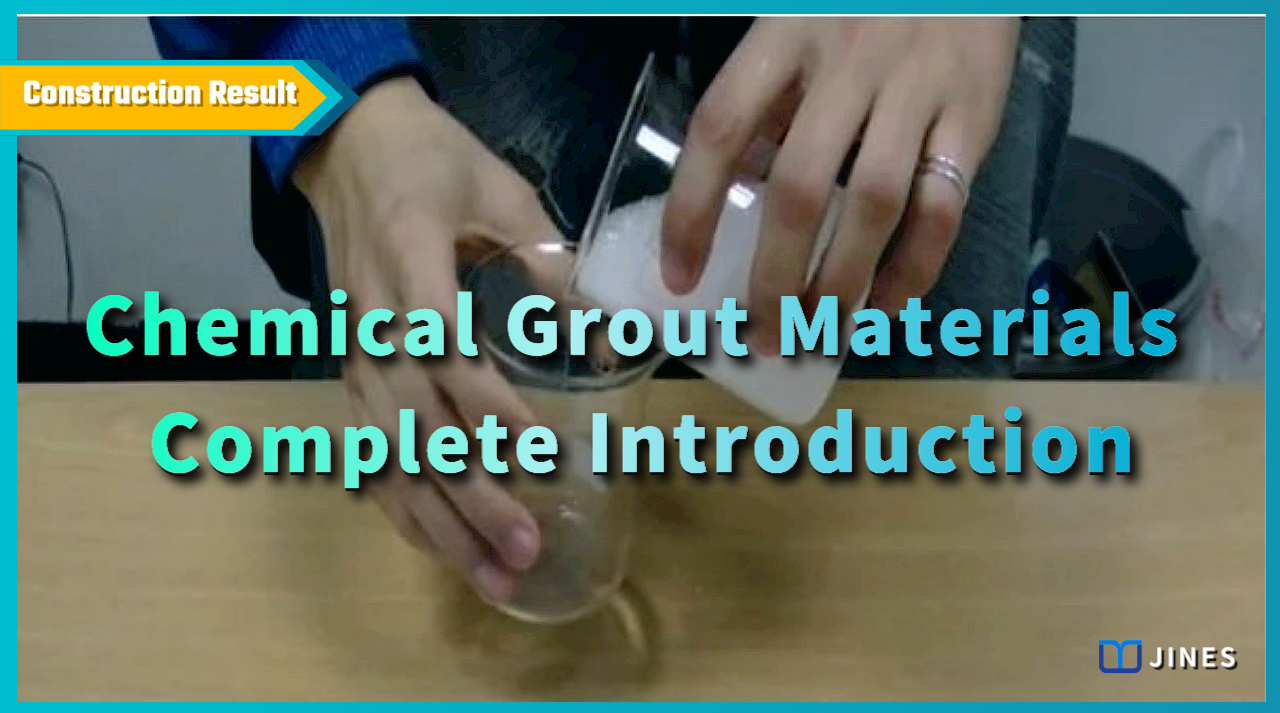
1. Chemical Grout Materials
Chemical grout materials are used in injection into the ground strata to increase strata strength, reduce permeability, and prevent liquefaction.
They achieve these purposes through processes such as penetration, diffusion, gelation, or solidification. Commonly used chemical grout materials include true solutions (ionic solutions) and gel-like suspensions (colloidal solutions), which generate gelation or solidification behavior through chemical reactions and physical coagulation methods.
In a broader sense, chemical grout materials also encompass high polymer compounds (such as polyurethane resins), chemical materials for soil pollution control (such as special chemicals, hydrogen peroxide, sulfuric acid, ultrafine metal powder suspensions), as well as the combination of cement or bentonite with chemical solutions.
These materials are also referred to as chemical grout materials. Due to the significant differences in properties and purposes among these materials, it is recommended to classify them separately to avoid confusion. 
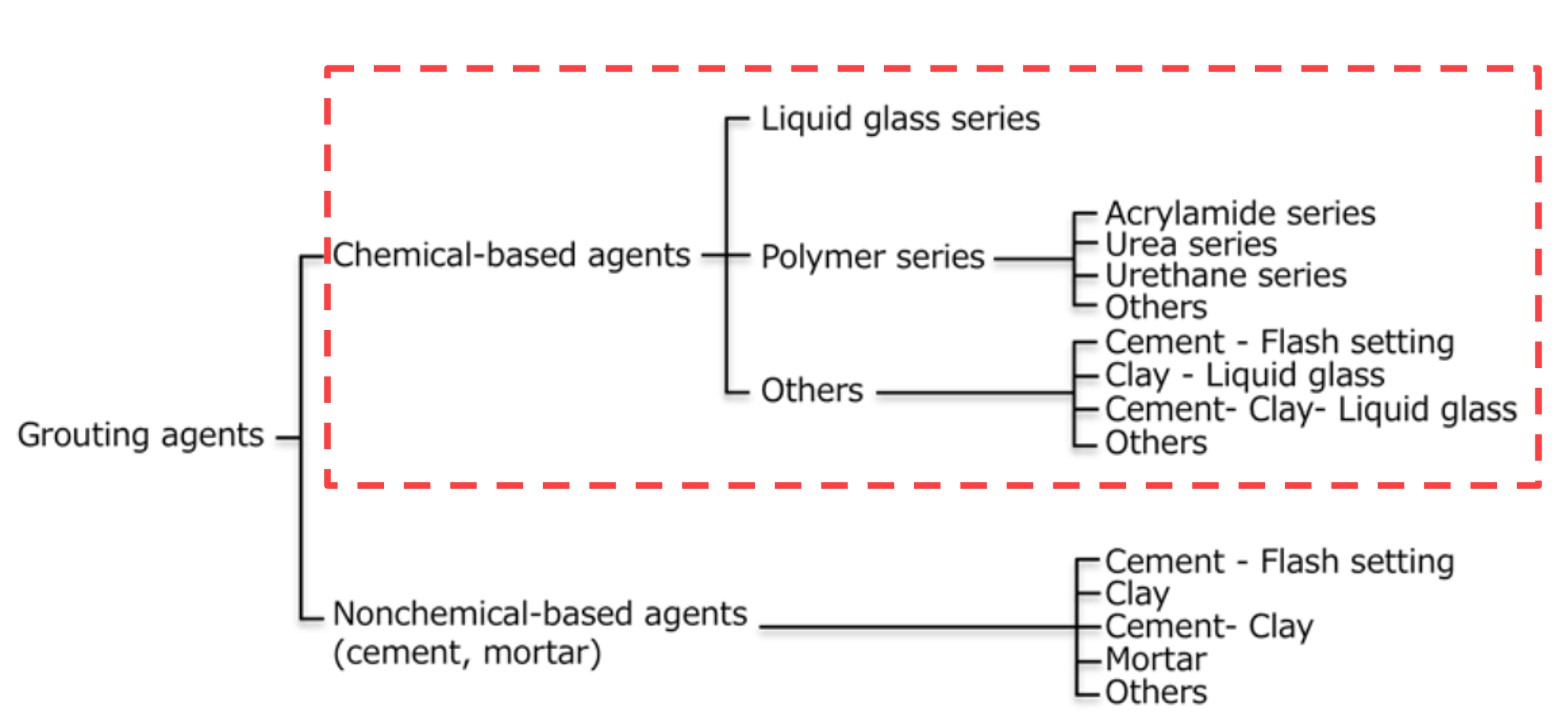
2.1 Common Types for Chemical Grout Materials
Sodium silicate: Sodium silicate, commonly known as “water glass,” is a widely used chemical material.It finds applications in various fields such as civil engineering, household products, chemical products, and the mechanical industry.
Sodium silicate is available in different grades based on the molar ratio, and it is used in different industries accordingly. The most commonly used grades in civil engineering are #3 sodium silicate and #5 sodium silicate.
The difference between the two lies in the composition of sodium ions and silicon dioxide. #3 sodium silicate has a higher sodium ion content, while #5 sodium silicate has a lower sodium ion content. 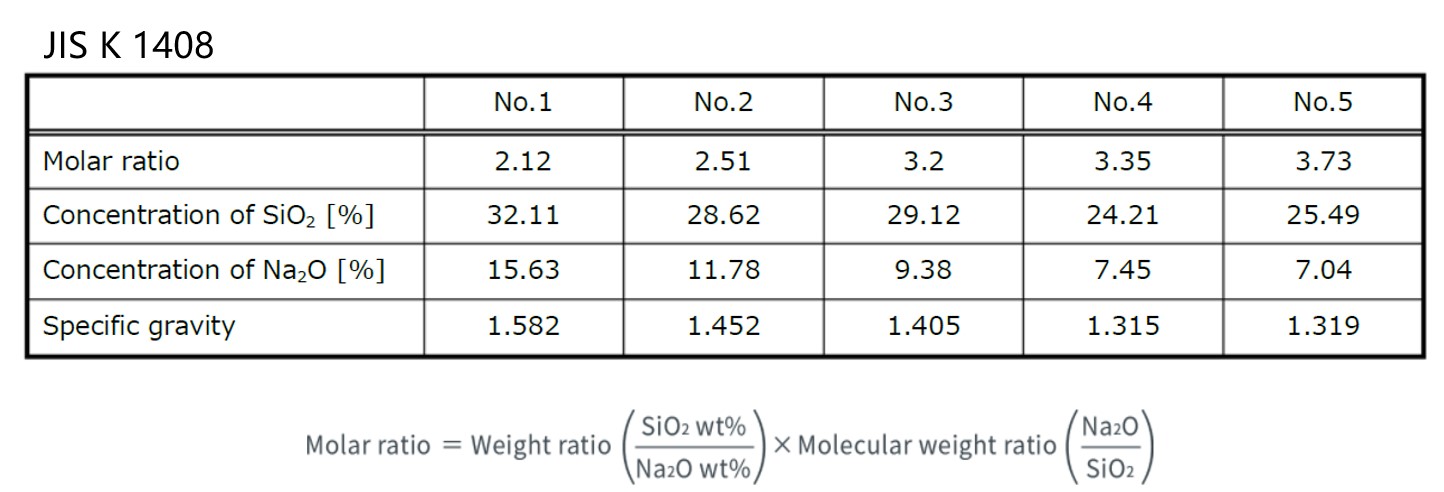
- Sodium silicate is synthesized from quartz sand, sodium carbonate, and caustic soda. It is soluble in water and exhibits alkaline properties.
- Different grades of sodium silicate contain different proportions of sodium ions.
- The gelation mechanism of sodium silicate is controlled by the acidity or alkalinity (pH) of the environment, which triggers a chemical reaction.
- The durability of the gelation depends primarily on the sodium ion content (water hydrolysis), although other metal ions and impurities can also have an impact.
- #3 sodium silicate has a higher sodium ion content and is suitable for short-term use (recommended for about 2 years). It exhibits poor gelation properties in saline-alkali formations, and the control of gelation time and instant gel behavior is challenging.
- #5 sodium silicate has a lower sodium ion content and is suitable for long-term use. It exhibits good gelation properties in saline-alkali formations, and the gelation time is easier to control. It can be used for instant gelation and ultra-instant gelation.
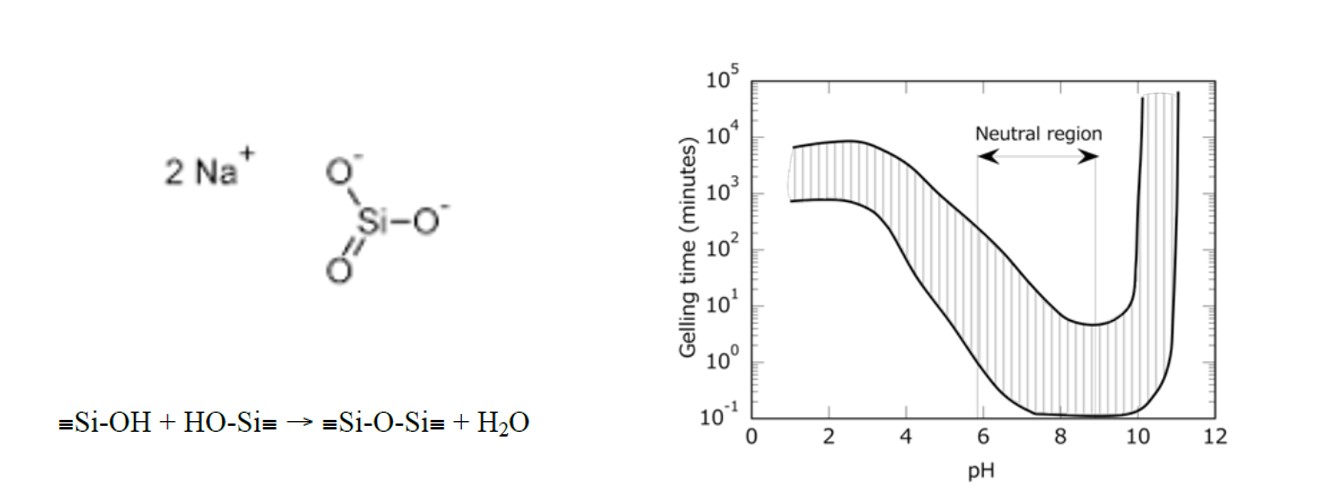 In order to achieve long-term gelation without hydrolysis and to be able to use sodium silicate in special formations such as saline-alkali formations, formations with high organic content, or chemically contaminated formations, it can be used alone or in combination with cement grout to achieve ultra-instant gelation (solidification) effects.
In order to achieve long-term gelation without hydrolysis and to be able to use sodium silicate in special formations such as saline-alkali formations, formations with high organic content, or chemically contaminated formations, it can be used alone or in combination with cement grout to achieve ultra-instant gelation (solidification) effects.
Professional manufacturers have developed an upgraded version of #5 sodium silicate, known as “SSA” (Specially Purified Sodium Silicate), by reducing impurities and metal ions in #5 sodium silicate. The engineering application code is “SSA”.
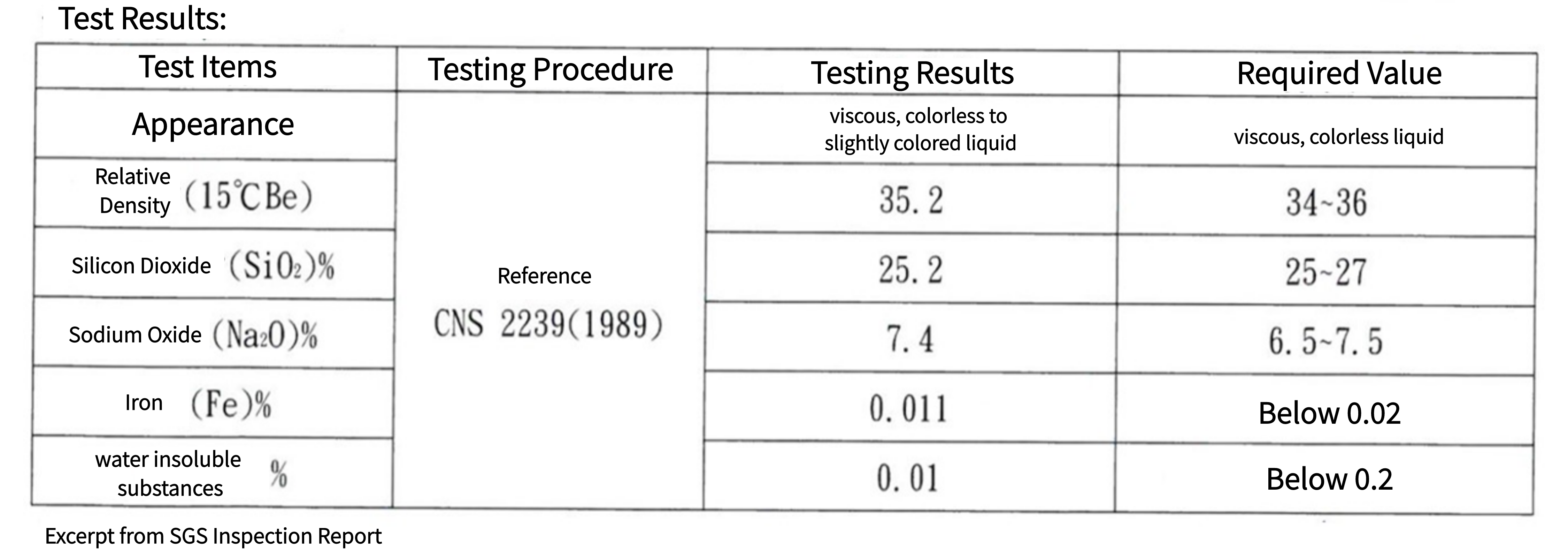
2-2 New Type of Chemical Grouting Material:
Colloidal Silica: Colloidal silica is a widely used chemical material in various industries such as civil engineering, household products, and the electronics industry. It is available in different types based on the application field, including neutral, positively charged, and negatively charged variants.
The manufacturing process of nano-sized colloidal silica for grouting applications is more demanding, which contributes to its higher cost compared to sodium silicate.
Here are some characteristics of colloidal silica: – Concentration: 7-50% silicon dioxide (SiO2) – Particle size distribution – Appearance: Spherical (high S-value) or chain-like (low S-value) – Particle size: 2-100 nanometers – Surface area: 30-1100 m2/g – pH: 2-12 – Surface modification: Ammonium modification, aluminum modification, chloride ion modification, alkyl modification, deionized. 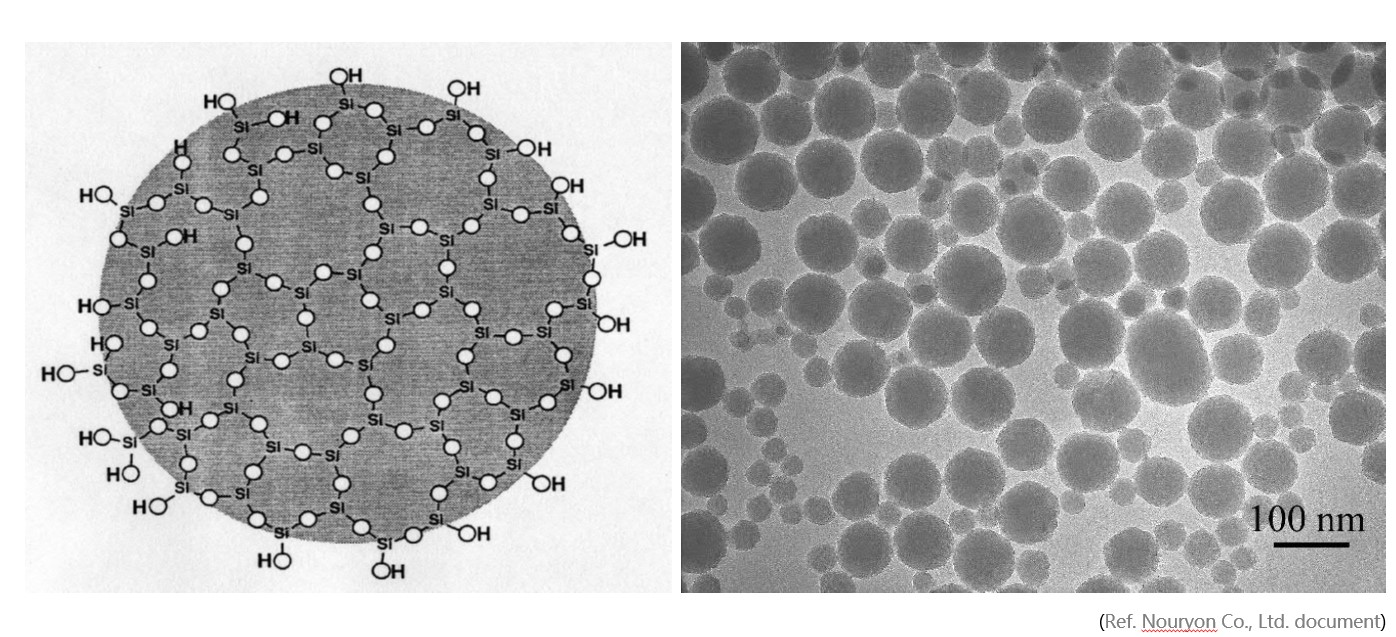 Colloidal silica is a type of suspension, and its gelation mechanism is a physical reaction. The coagulant does not participate in the conversion of silicon dioxide bonding; it only causes an imbalance in the collective charge, triggering the gelation reaction.
Colloidal silica is a type of suspension, and its gelation mechanism is a physical reaction. The coagulant does not participate in the conversion of silicon dioxide bonding; it only causes an imbalance in the collective charge, triggering the gelation reaction.
In terms of operation, colloidal silica has a relatively lower technical threshold. 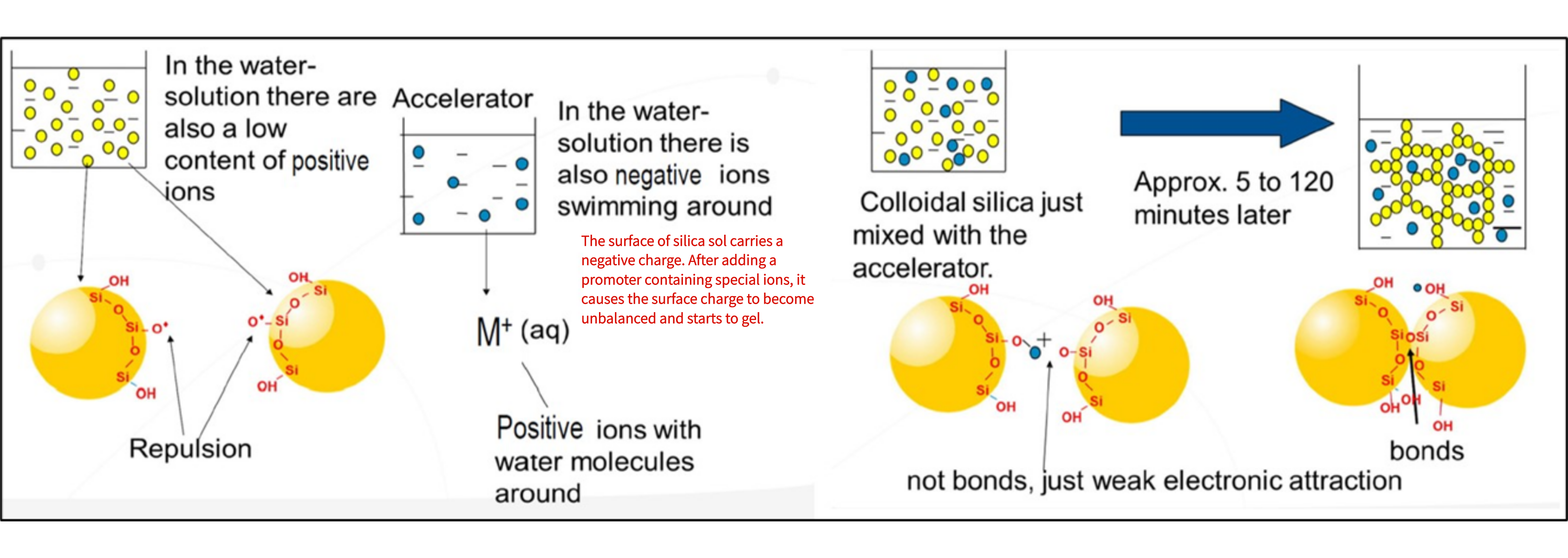 Since the gelation mechanism of colloidal silica is a physical reaction, the reaction termination time can be altered by changing the concentration of the coagulant.
Since the gelation mechanism of colloidal silica is a physical reaction, the reaction termination time can be altered by changing the concentration of the coagulant.
However, due to the sensitivity of the main agent in colloidal silica to charge variations, it is not suitable to dilute and prepare the material on-site. This limitation can result in increased material costs and transportation expenses.
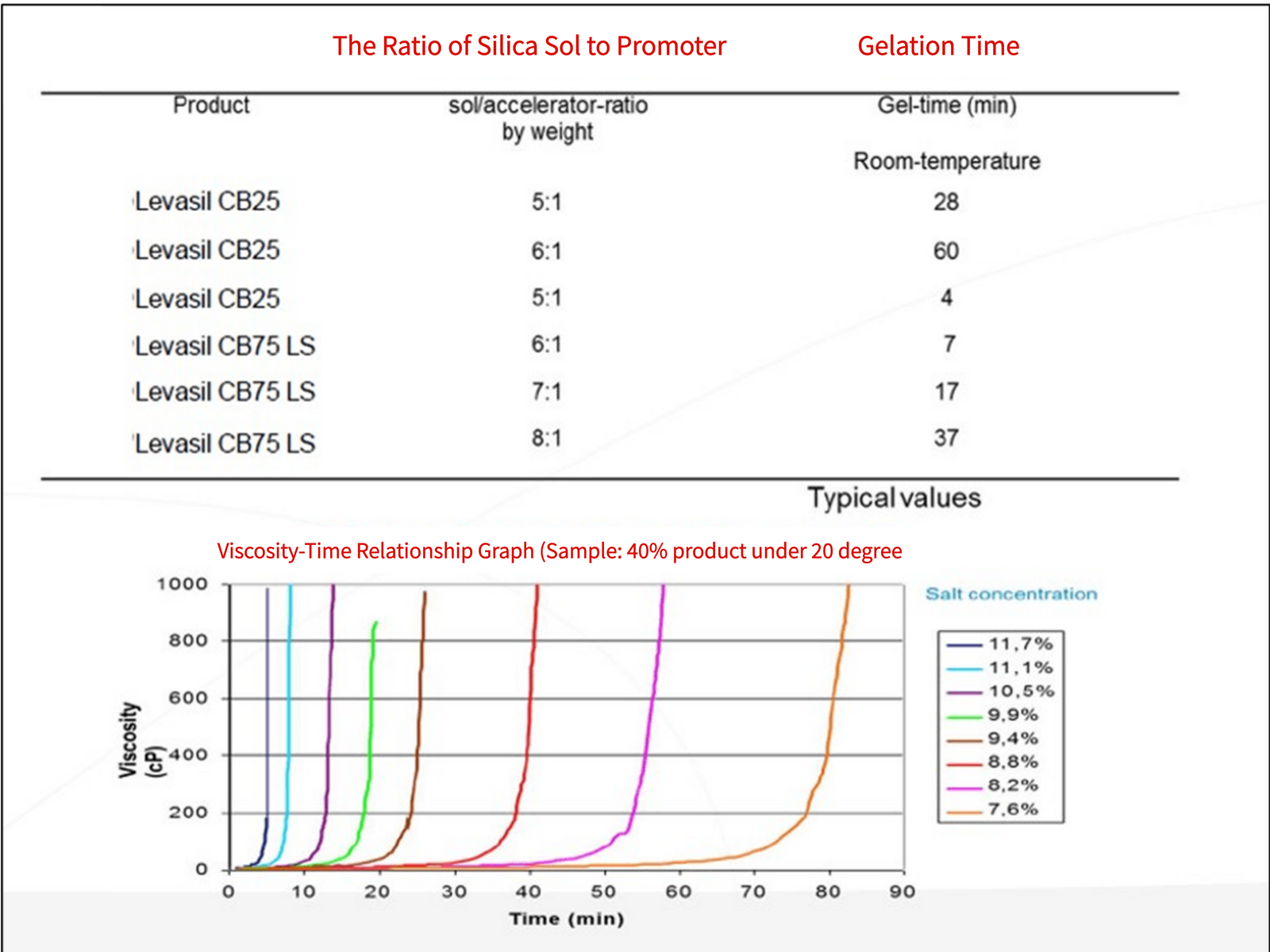
―
3-1 Chemical Grouting Material Application Methods
Key Points: • Purpose: • Effect: • Time • Cost:
Considerations: • Construction site compatibility • Impacts around the site (box culverts, pipelines, underground spaces, structures/roads, etc.) • Whether the contractor has similar experience • On-site Management Capability • Can match the entry time
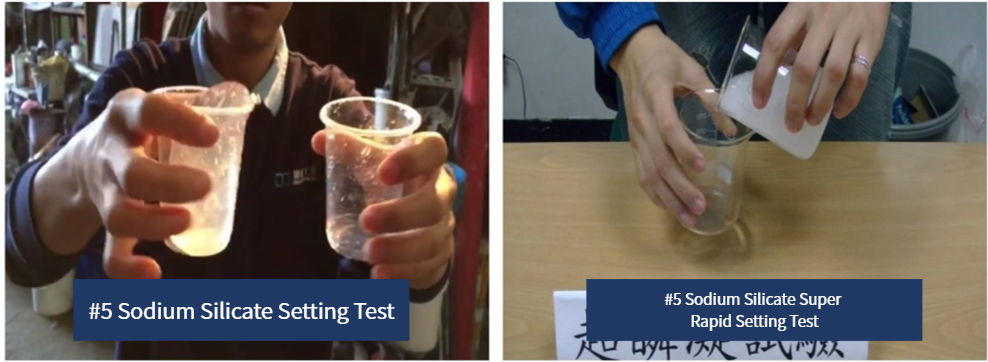
―
3-2 Main Functions and Applications for Chemical Grouting Material:
Sodium Silicate and Colloid Silica:
- Sealing Water Inrush:
- Reducing Permeability:
- Increasing Soil Cohesion:
- Preventing Soil Liquefaction:
Compatibility with Construction Methods:
- Double-Packer Method: – Penetration Improvement
- Dual-Pipe Method: – plugging, compaction, vein fracturing improvement
- Single-Pipe Grouting Method (one diameter) – fracturing

―
4. Advantages and Disadvantages for Chemical Grouting Material
Advantages:
• Quick setting; the grout exhibits rapid setting time, reducing the risk of material dilution or displacement by groundwater.
• High permeability and durability; the material has high permeability and durability, making it suitable for permeation grouting in sandy soils.
• It can uniformly reduce the permeability coefficient of the strata.
• Moderate strength enhancement; moderately increases soil strength; (maximum 0.4mpa)
• Overlapping capability; the grout can construct a continuous water-stop curtain.
• Compatible with Double-Packer method; allows repeated grouting.
Disadvantages:
• Not Suitable for filling underground voids.
• Low grout strength after curing.
• The formation needs to maintain a certain level of moisture for the grout to remain in a gelled state.
• Sodium silicate material blending technical expertise is high; colloidal silica needs to be mixed in the factory.
• Emphasis on on-site construction management and control.
―
5-1 Case Stud
Ground Improvement for TBM Tunneling Launch, Arrival, and Connection Passage Areas
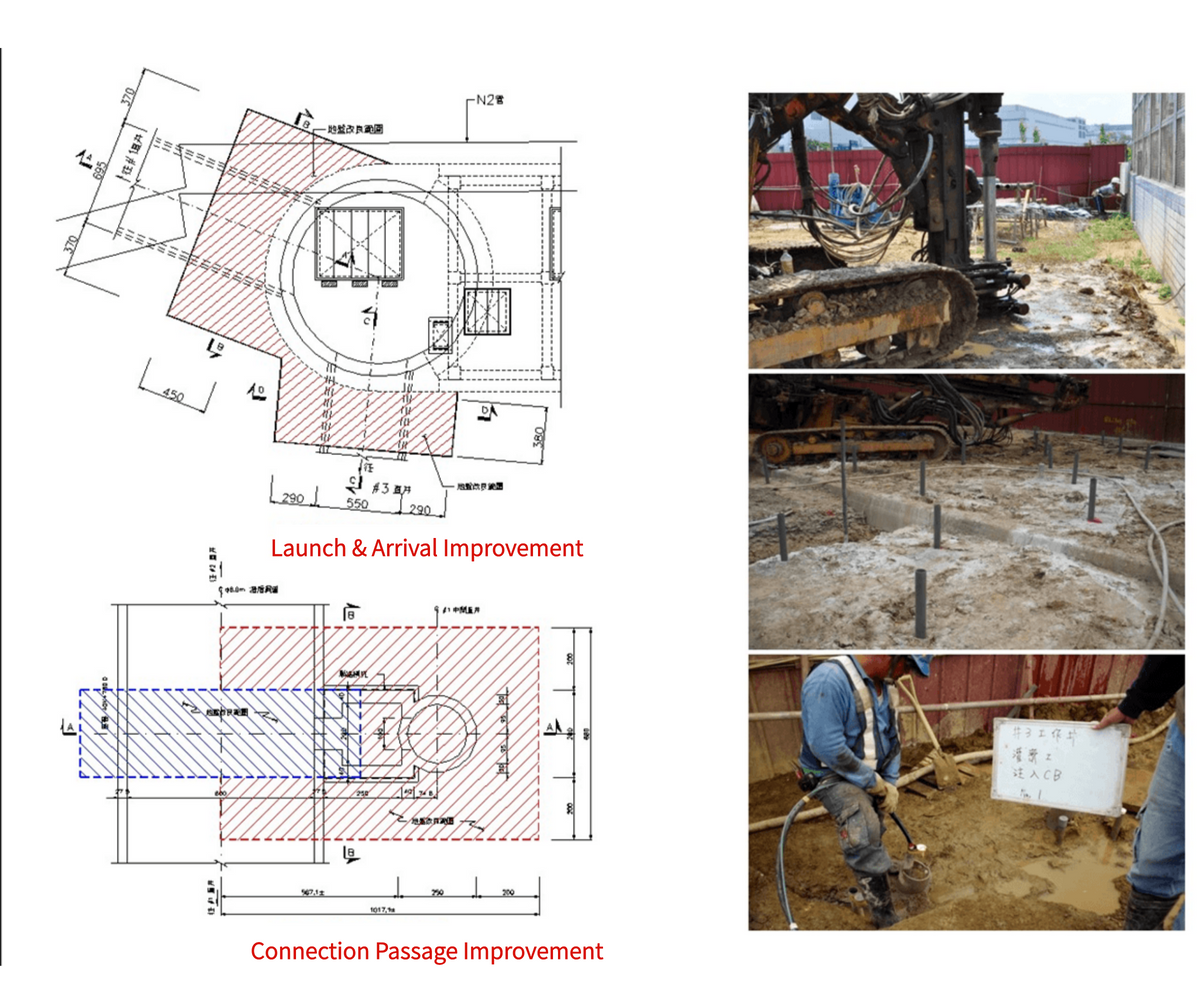
Metro Tunnel Launch and Shallow Overburden Section
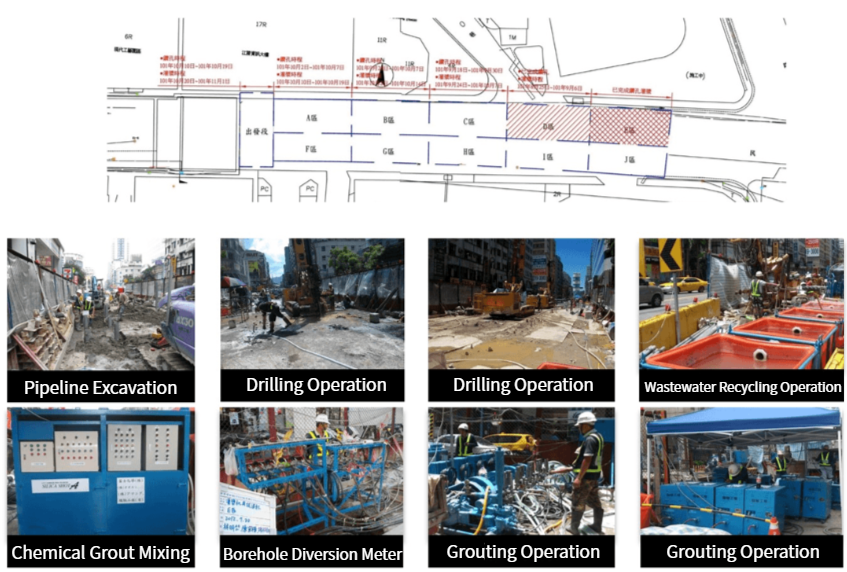
MRT Tunnel Connection Passage Site Improvement
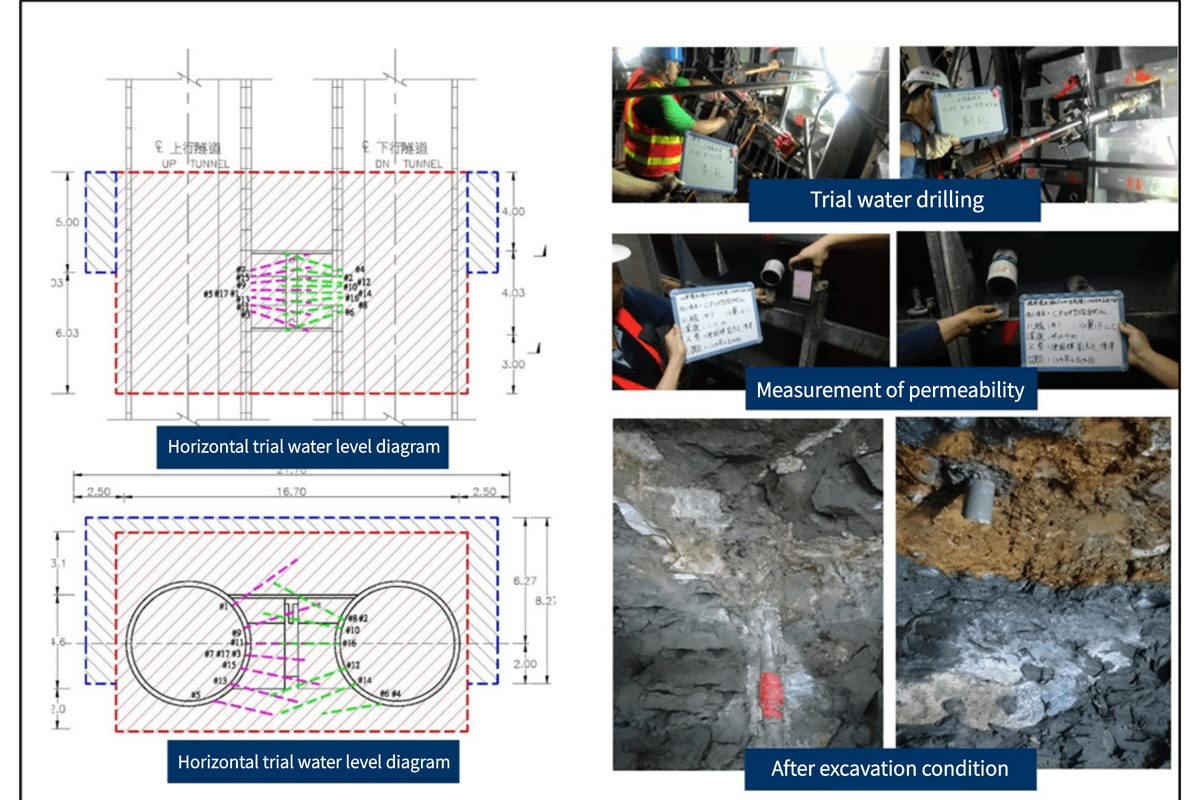
Emergency Response to Water Inrush & Collapse in TBM Tunnel Construction
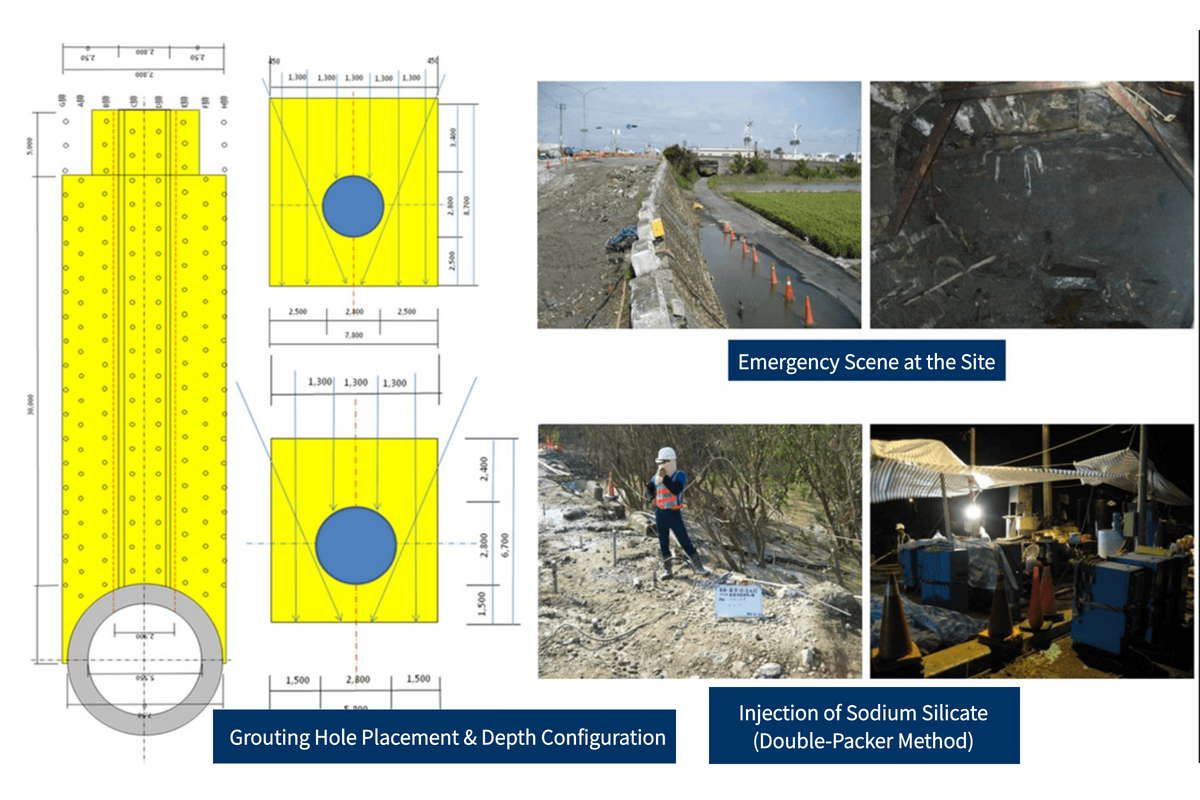
Emergency Response to Water Inrush at Basement Excavation
During excavation of a basement by reverse construction, water and sand inrush occurred at the excavation face of a vertical shaft. The water inrush problem was effectively overcome using the Double-Tube water-stop method combined with super-instant setting and slow-setting sodium silicate chemical grout injection. 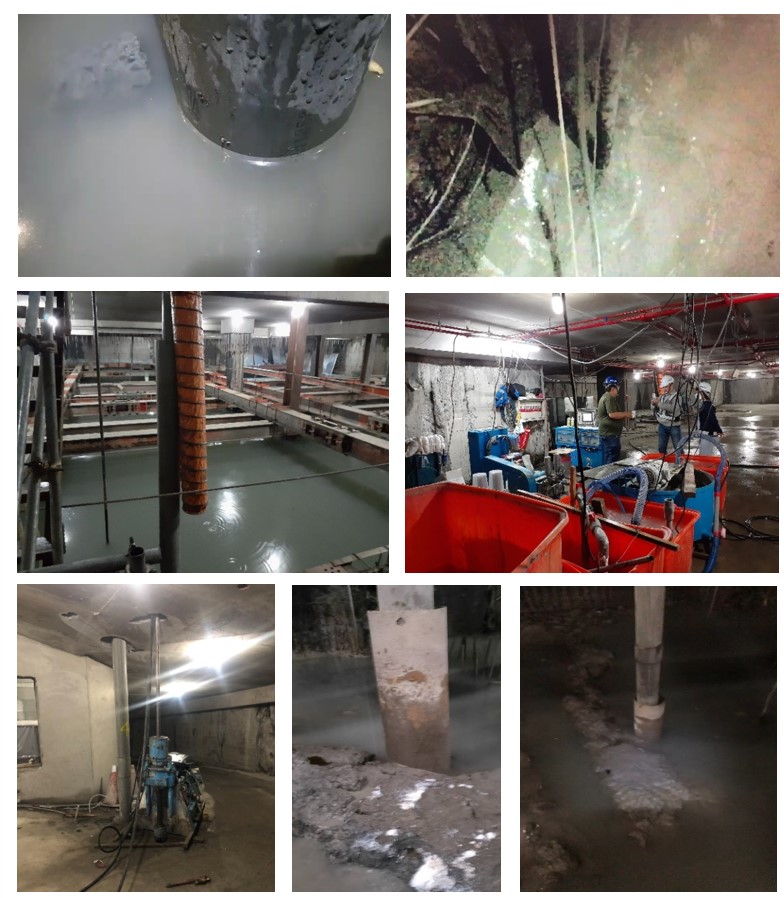
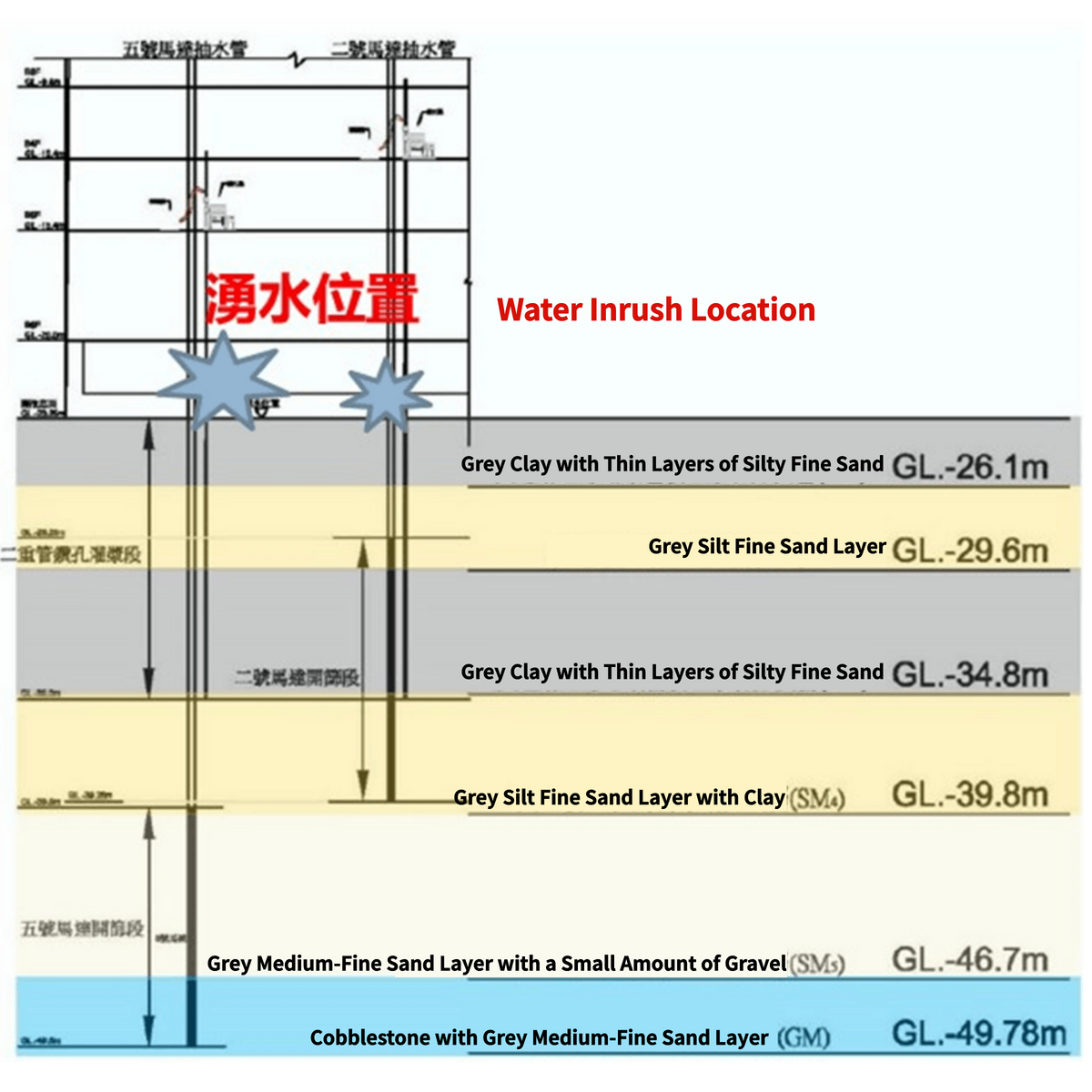 ・More Construction Result Sharing
・More Construction Result Sharing
Contact us:+886 2769-2355
Copyright ©Jines Construction Co.,Ltd